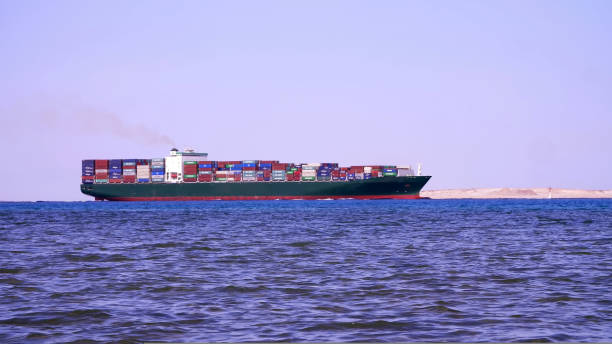The Red Sea crisis has sent ripples through supply chains worldwide. For South African farmers, however, the impacts have been mitigated by a combination of strategic agility and a steadfast commitment to sustainability.
The Red Sea crisis refers to the geopolitical tensions and conflicts in the region, an important maritime route linking Europe, Asia and Africa. Key issues include territorial disputes, piracy, competition for control over strategic chokepoints like the Bab-el-Mandeb Strait and rivalries among regional powers such as Saudi Arabia, the UAE, Egypt and Turkey. These tensions are exacerbated by proxy conflicts and concerns over resource access, including fishing and oil shipping lanes.
Jacques de Villiers, Executive: Manufacturing, Operations and Supply Chain at Omnia Holdings, says that supply diversification – both locally and internationally – has been pivotal in cushioning the South African agricultural sector from the brunt of these global challenges.
“The crisis has primarily affected container flows between China, Europe, and the east coast of the United States. This means South Africa’s agricultural supply chains have been relatively insulated, explains de Villiers.
“Most of our products bypass the Red Sea, coming from regions like the Middle East and Europe, along Africa’s east and west coasts. While global container disruptions do create market instability, a focus on bulk shipments rather than containers minimises the impact. It helps maintain a reliable supply of agricultural inputs, ensuring that our farmers are equipped to sustain food security.”
One observable shift is the increased traffic of goods past Africa, presenting potential opportunities for trade realignments. However, de Villiers notes that practical benefits have yet to fully materialise, highlighting the need for strategic exploration of these opportunities across the continent.
Ensuring stability amid shifting trade dynamics and global disruptions
While the Red Sea crisis may not be impacting South Africa’s trade routes directly, proactive measures are critical in weathering global disruptions. “At Omnia, for example, we’ve diversified our supply sources across multiple geographies, including Europe, North America, Asia and the Middle East. This approach ensures that we remain resilient, regardless of geopolitical developments,” de Villiers explains.
This diversified sourcing strategy is complemented by local manufacturing capabilities. Omnia’s Sasolburg facility, described by de Villiers as the “most carbon-efficient, green, and technologically advanced production site of its kind in the country,” plays a critical role in supporting South Africa’s agriculture and mining sectors.
In this sense, sustainability remains a cornerstone of Omnia’s supply chain strategy. By prioritising nutrient-use efficiency, water-use efficiency, and the integration of bio-stimulants, Omnia helps farmers maximise limited resources while reducing environmental impact. De Villiers highlights that the company’s long-term vision includes transitioning to green ammonia, a critical step toward producing fully sustainable ammonium nitrate-based fertilisers.
“Although current market realities demand a careful balance between cost, reliability, and environmental sustainability, it is important that we, as an industry, remain committed to moving towards greener agricultural inputs,” says de Villiers.
The recent geopolitical crises have underscored the importance of agility and reliability in supply chains. De Villiers reflects: “The world has shifted from a ‘just-in-time’ to a ‘just-in-case’ model. While the latter may involve higher costs, it ensures supply chain resilience and provides opportunities to explore new markets.”
Omnia’s preparedness has been evident through various crises, from the COVID-19 pandemic to the Russia-Ukraine conflict. “We’ve never run out of product, thanks to our pre-emptive contingencies. While some competitors struggled to adapt, our agility allowed us to maintain uninterrupted supply,” de Villiers emphasises.
Building sustainable value chains in Africa
Creating sustainable value chains extends beyond a business’ operations. By actively engaging with farmers, producers can ensure minimal disruption to agricultural activities while promoting long-term environmental and economic benefits, says de Villiers.
“Africa’s biggest challenge is logistics. Our focus is not just on addressing immediate challenges but also on shaping a future where sustainability and resilience go hand in hand,” concludes de Villiers.








